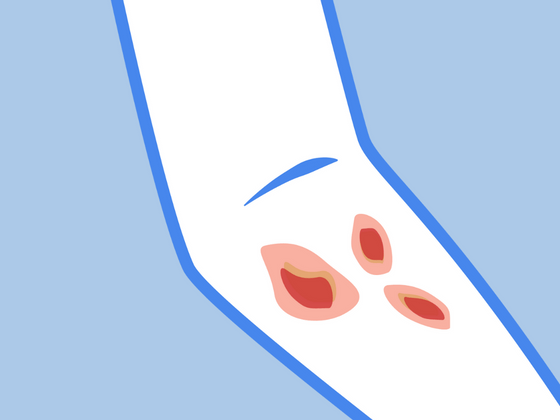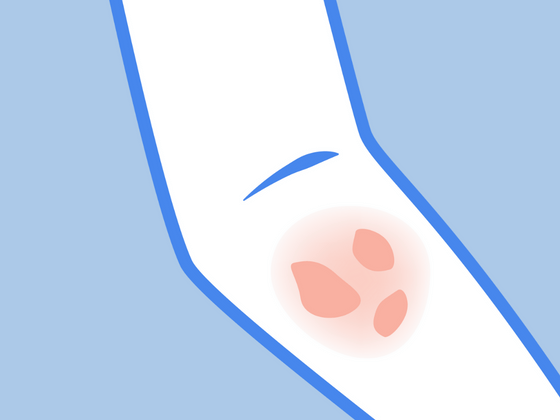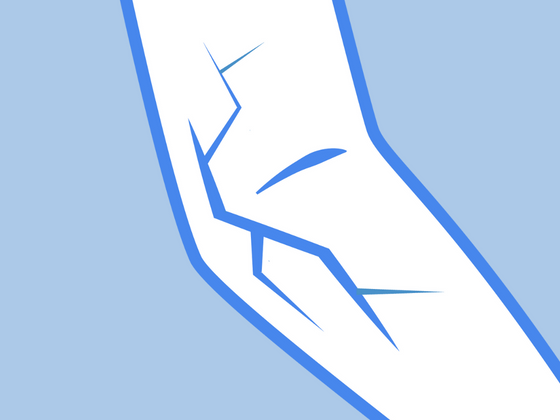Eczema is an itchy and uncomfortable skin condition that can occur anywhere on the body — including outside the ear or inside the ear canal. If left untreated, ear eczema can lead to infection or inflammation of the ear canal.
Read on for everything you need to know about ear eczema - including different types, symptoms, and natural treatment options.
Please keep in mind that although these tips can relieve eczema, we are in no way medical professionals. If you’re experiencing severe eczema symptoms like an infection, it is best to seek medical advice immediately.
Symptoms of Eczema Around Ears
As with all forms of eczema, itchiness is a prime characteristic. Those suffering from ear eczema may also notice dry and scaly skin in or around their ears. It’s possible that there may be clear discharge from the ear, in addition to any redness and swelling.
Bear in mind that ear eczema can affect not only the skin of your ear, but the area behind your ear and the fold between your earlobe and face as well. In some cases, it may even affect your ear canal.
Most people will experience mild to moderate symptoms. Severe symptoms may result in dry patches developing a rough or leathery texture. Oozing or bleeding may result if the skin cracks.
What Causes Ear Eczema?
The cause of ear eczema depends on what kind of ear eczema it is. In general, people suffering from eczema tend to have an overactive immune system that responds with inflammation when triggered.
Common triggers include:
- Soaps, fragrances, and detergents
- Stress
- Certain foods
- Rough fabrics, such as wool
- Cigarette smoke
- Pet fur, pollen, or dust mites
- Extreme weather conditions, especially cold, dry weather
- Certain metals - including nickel
For more information on what triggers your eczema, check out our post: Eczema 102: What Triggers Eczema.
Types of Ear Eczema
Asteatotic eczema: Commonly seen in older people and occurs when skin is exposed to changes in climate. Other triggers that can exacerbate symptoms include indoor heating and overwashing.
Seborrheic eczema: Develops in oily areas of the body, such as the scalp, but can also affect the ear folds and the skin behind them. While most symptoms include scaling and redness, in severe cases, crusty cracks may also develop.
Atopic eczema: Results after contact with allergens such as earrings, make up, hair products, cell phones, and a variety of other beauty products.
How to Treat Ear Eczema
To treat your itchy symptoms and prevent infection, there are a number of natural treatments and lifestyle changes you can easily put to use.
Wash Carefully
When washing your ears, be sure to use lukewarm water. Avoid hot water as this tends to further dry out your skin. In addition, make sure you use a natural soap and pat dry with a towel instead of rubbing to avoid aggravating your symptoms. Check out this alternative soap that doubles as a shampoo. A natural body wash with no added colours or fragrances, the Liquid Soap Soother provides a soft bathing experience that your sensitive skin will love.
Moisturize with Natural Products
Stay clear from chemicals or toxins and switch to natural products that are gentle enough for sensitive skin instead.
You can’t go wrong with our Organic Manuka Skin Soothing Cream. It’s safe for every inch of your body, without any burning or stinging. Made with manuka honey, its antibacterial and anti-inflammatory properties are sure to calm and soothe.
Avoid Triggers
If you have atopic eczema, it may be time to stop using certain products or wearing certain pieces of clothing or jewelry. This will prevent your allergens from coming into contact with the area around your ears and triggering a reaction. If you don’t already know which products are causing your eczema to flare-up, it may take some time and effort to narrow down which products are the problem.
References:
https://www.medicalnewstoday.com/articles/323150.php
https://www.healthline.com/health/ear-eczema
https://greatist.com/health/ear-eczema
------------------

Bio: Laura is a contributor and content developer for The Eczema Company. She is in no way a medical professional. Her comments, suggestions, and reflections are not intended to replace any medical advice. Always seek the help of a medical professional before undertaking any diet or lifestyle changes.








